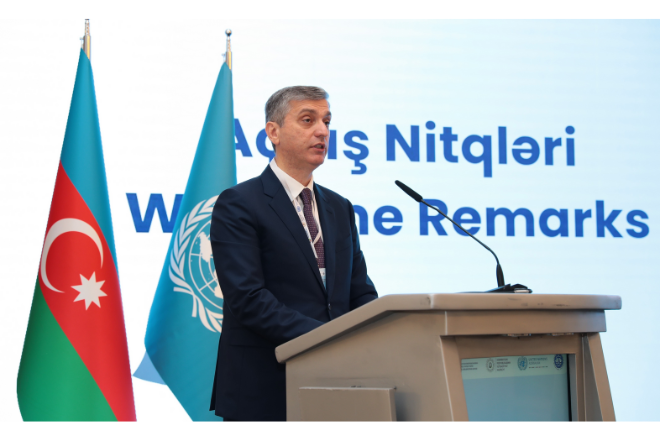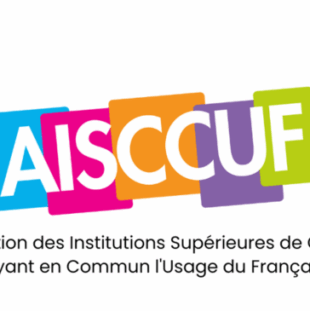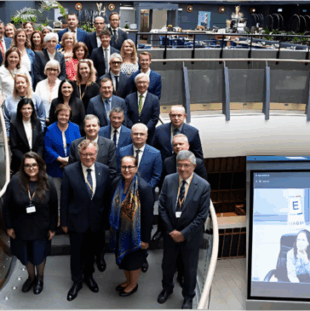The Role of SAIs in Implementing SDGs: SAI Azerbaijan’s Perspective and Progress

By Mr. Vugar Gulmammadov, Chairman of the Chamber of Accounts of the Republic of Azerbaijan
As an important initiative in the realization of the social, economic and environmental goals of the state, United Nations Sustainable Development Goals (SDGs) are strongly supported in the international Supreme Audit Institution (SAI) community. In this regard, INTOSAI has defined the achievement of the Sustainable Development Goals as one of the long-term main goals in its strategic documents. This global challenge has also been considered in INTOSAI’s prepared international principles, standards and guidelines. The Strategic Management Handbook for Supreme Audit Institutions emphasizes that it is especially important to focus on five SDGs (Goal 1: No Poverty; Goal 2: Zero Hunger; Goal 3: Good Health and Well-being; Goal 4:Quality Education, and; Goal 5: Gender Equality).
In this direction, the ISSAI 5130 “Sustainable Development: The Role of Supreme Audit Institutions” was adopted, and this document has become a guideline since 2019. This document is currently considered as the main reference document for SAIs conducting environmental and sustainable development audits.
We can group the role of SAIs in the implementation of SDGs in two directions:
✓ SAIs support good governance through their role in accountability and transparency;
✓ On the other hand, SAIs provide practical analyses, evaluations and follow-up of the work done on the management, implementation and monitoring of programs, regulations, and sustainable goals.
At the same time, supporting institutional reforms by strengthening the control over the management of state finances is one of the important challenges for SAIs in our modern world.
Fiscal rules, medium-term expenditure framework, effective implementation of result-based budget institutions, and linking these institutions with the financing of SDGs are considered the main challenges for the medium-term period of public finance management in our country, Azerbaijan, today.
To adequately respond to global challenges and changes, the SAI Azerbaijan has considered the mentioned challenges in forming its strategic management framework. It is no coincidence that the Strategic Plan of SAI Azerbaijan defines “Strengthening the accountability and fiscal responsibility of the state finances, better implementation of the medium-term expenditure framework and result-based budget” as one of its strategic outputs.
We intend to contribute to the mentioned strategic goals both by providing high-quality opinions on the draft budget and its implementation, and by conducting public audits, with a specific emphasis on performance audits. Within three years, important work has been completed to achieve the goals. I would like to highlight some of them, as well as our goals in this area for the coming period:
1. Considering the recommendations in the opinions by SAİ Azerbaijan, the information on the work done by the executive bodies on the financing of sustainable development goals was included in the budget documentation for the first time, where the measures of the country’s most important strategic document were budgeted according to the SDGs.
2. The number of SDGs covered by performance audits carried out by SAI Azerbaijan has increased. In accordance with our Strategic Plan, we conducted four performance audits in 2021 and five in 2022. In 2021, two and in 2022 five of the selected topics were evaluated, and six SDGs were covered during these years. In this case, the SDG targets were accepted as the audit criteria. These audits also analyzed whether the calculations made by the State Statistics Committee on the global SDG indicators were in agreement with the audit results.
3. During the conducted performance audits, the compliance of the actual indicators with the targets, in other words, the achieved progress, was assessed. During these years, a total of 16 SDG indicators were covered by SAI Azerbaijan, representing an increase from 13 in 2022. SDG targets and indicators allow SAIs to conduct audits in three broad areas. In addition to the progress assessment, an audit of the goals (assessing the realism of the goals, or the correct understanding of the work to be done on the needs), and an audit of the indicators (assessing their reliability and accuracy) can also be carried out. Increasing the scope of the result-based budget will also allow the use of those audit approaches by SAI Azerbaijan.
4. We started an overall analysis of the results of performance audits. With this analysis, we identify characteristic weaknesses. This allows for SAI Azerbaijan to draft more comprehensive recommendations and suggestions. According to the audit results conducted recently, the characteristic weaknesses in the implementation of the SDGs were:
– the lack of understanding of responsibility and role by some institutions,
– poor organization of strategic planning work or lack of long-term planning work in some institutions,
– deficiencies in horizontal integration,
– lack of criteria for budgeting on programs and lack of coordination of budget execution with SDGs,
– potential gaps in the institutions involved in SDG implementation.
5. The overall analysis of performance audits by SAI Azerbaijan also lays the groundwork for conducting government-based SDG audits. Thus, achieving nationally agreed targets requires a whole-of-government approach. The results of the audits conducted with this approach, allow to take into account the initiatives implemented by the public sector institutions responsible for achieving the national goal, the mechanisms of cooperation, coordination and communication between them, and the presentation of a unified picture about it. In addition to this approach, including conceptual issues in the next audits SAI Azerbaijan considers will help assess the adequacy of the state budget expenditures for the relevant goals, and the provision of financing of special needs for the groups related to the goals.
6. INTOSAI culminates performance audits conducted across SAs on SDGs in an “INTOSAI SDG ATLAS”. The SDG audit results of about 60 countries are included in that atlas. The INTOSAI SDG Atlas makes it possible to identify countries in which SAIs have evaluated their governments’level of preparation for the SDGs, as well as the state of implementation of these goals. SAI Azerbaijan ranks among the first in the aforementioned Atlas with its audits. Our country takes the first place among CIS countries and the region.
7. SAI Azerbaijan is an active member of both INTOSAI and ASOSAI Working groups on Sustainable Development Goals, and tries to strengthen the image of a professional partner in the international community. The Intergovernmental Support Office of the UN Department of Economic and Social Affairs and the Coordinating Center for Sustainable Development prepares a report on best practices every year based on Voluntary National Reports submitted by UN member countries. This Report also reflects the activity carried out by SAI Azerbaijan as a best practice.





